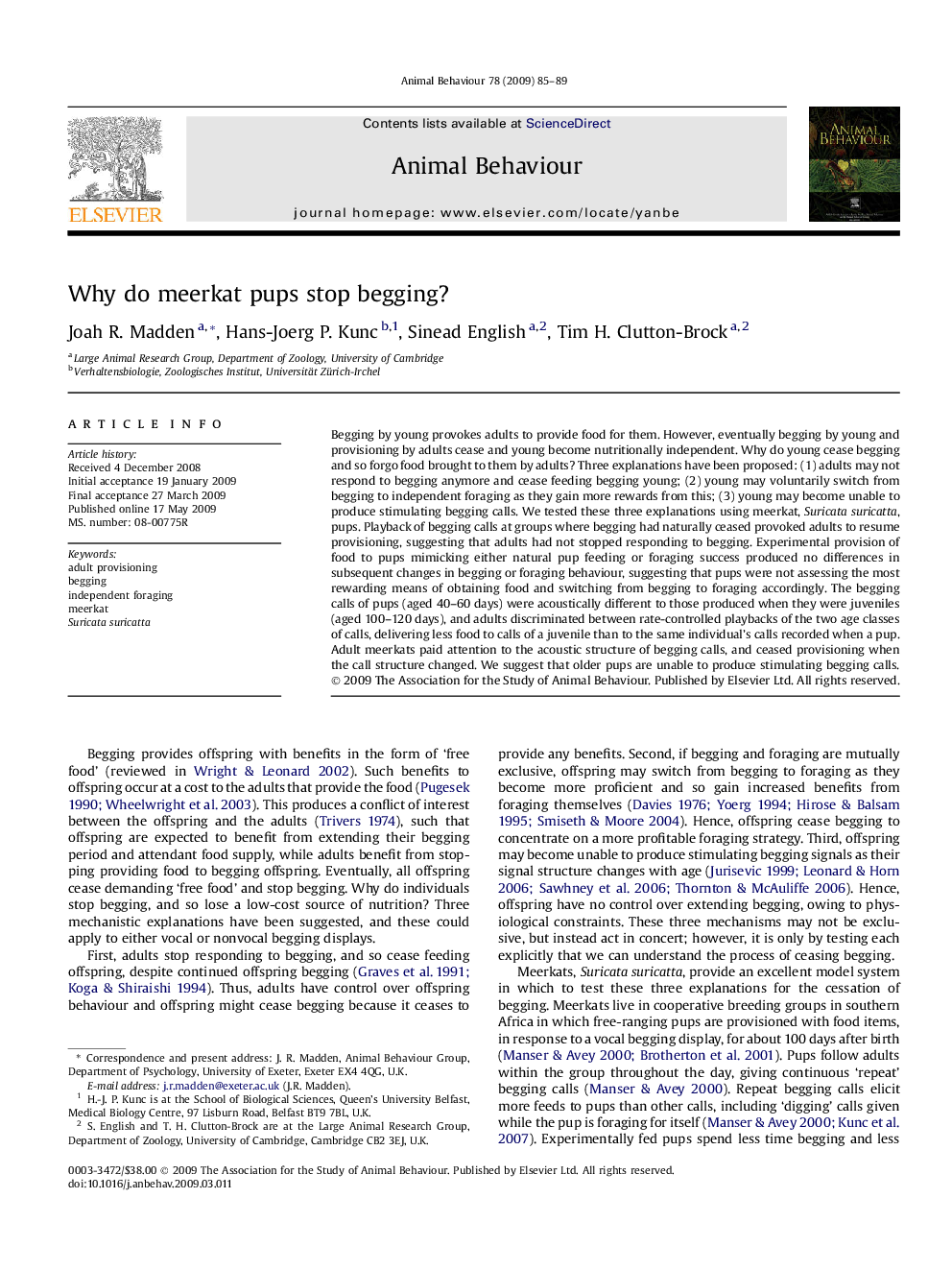| Article ID | Journal | Published Year | Pages | File Type |
|---|---|---|---|---|
| 2417586 | Animal Behaviour | 2009 | 5 Pages |
Begging by young provokes adults to provide food for them. However, eventually begging by young and provisioning by adults cease and young become nutritionally independent. Why do young cease begging and so forgo food brought to them by adults? Three explanations have been proposed: (1) adults may not respond to begging anymore and cease feeding begging young; (2) young may voluntarily switch from begging to independent foraging as they gain more rewards from this; (3) young may become unable to produce stimulating begging calls. We tested these three explanations using meerkat, Suricata suricatta, pups. Playback of begging calls at groups where begging had naturally ceased provoked adults to resume provisioning, suggesting that adults had not stopped responding to begging. Experimental provision of food to pups mimicking either natural pup feeding or foraging success produced no differences in subsequent changes in begging or foraging behaviour, suggesting that pups were not assessing the most rewarding means of obtaining food and switching from begging to foraging accordingly. The begging calls of pups (aged 40–60 days) were acoustically different to those produced when they were juveniles (aged 100–120 days), and adults discriminated between rate-controlled playbacks of the two age classes of calls, delivering less food to calls of a juvenile than to the same individual's calls recorded when a pup. Adult meerkats paid attention to the acoustic structure of begging calls, and ceased provisioning when the call structure changed. We suggest that older pups are unable to produce stimulating begging calls.
